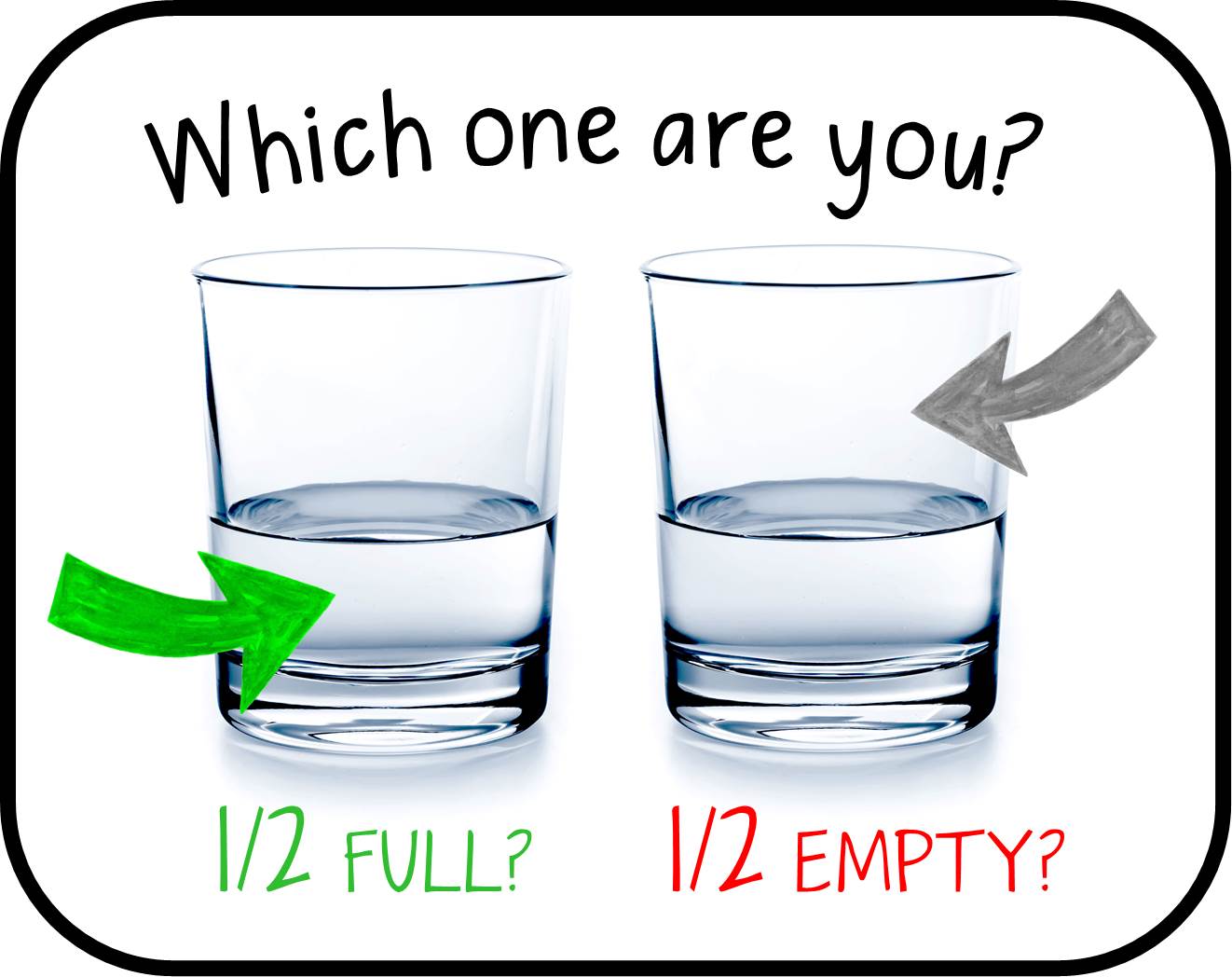On Becoming a Personal Scientist: Living in the half-full glass

Most of us have felt depressed, down, or ‘blue’ at some point in our lives.
Depression differs from grief or sadness in that it is often accompanied by feelings of hopelessness, helplessness, shame, guilt, and even anger towards oneself. It is not uncommon for depressed people to berate themselves for having fallen short of some ideal or having failed in some way. At the same time, they may not be able to renounce their aspirations, or fully accept the limitations of reality. A precipitating event for depression may point to the non-attainment of ideals upon which self-esteem is founded, and lead to feelings of helplessness, shame and loss of self-esteem. It may also involve the loss of a significant other, or perhaps a loss of a former state of self, such as the well-being attained in the relationship with that person. This may be compounded by self-criticism. At times, it is easier to be angry with ourselves, rather than with the person we lost in some way, whether through separation, illness or even death.
There is a continuum between feelings of sadness and mild dysphoria to a fully-fledged clinical depression, manifested by loss of appetite, sleep disturbance, frequent crying, a sense of hopelessness or futility, anxiety, and other manifestations.
I would like to invite you to become a personal scientist and strive to adopt a neutral, non-judgmental stance so you can reach an observational place where you can become attuned to your own negative self-talk. For now, you don’t need to do anything except take a step back and witness it, listen to it. Maybe later you can contest it, but not now. Here are some examples of negative self-talk: “How stupid of me!” ; “I can’t believe I did that!”; “I’m good for nothing.” And so forth.
These self-critical and non-loving thoughts may stem from things we heard when growing up, perhaps when we were told variants of the above by significant people in our lives, such as a parent. Young children are very impressionable, and the way they are treated affects how they treat themselves and others. As adults, it is our job to become aware of such ‘internalizations’ and make sure we don’t pass them on automatically to our own children. We need to be able to accept our self and our children unconditionally, just as they are. (This does not mean there is no room for change—I am not suggesting we are perfect.) When our critical stance has become ingrained in who we’ve become, we may require therapy in order to become more compassionate and self-loving towards our self. In turn, this should help us become more loving towards others.
In order to see the half-full glass, rather than its half-empty counterpart, we need to learn how to rejoice in the small things, not just the big ones. We need to actively cultivate our resources, by which I mean anything that makes us feel good and is not detrimental to our health. Some people find it helpful to start a Resources Notebook, where they can regularly take note of anything during their day that made them feel good—a friend calling them, a smile, a kind word, a beautiful sunset, a flower on their desk, washing the floor. It can also be an internal quality: “I did good today, I did not give up and persevered with my homework assignment even though I did not feel like it and it was hard”; “I applied my sense of humor to an impossible situation and this helped resolve it,” etc.
The half-full glass is the antidote to the half-empty one.
To deal with life’s constant challenges by taking them in stride in the best possible way at that time, we must continually tend to and recharge our ‘batteries,’ make sure we are emotionally involved in activities and relationships that make us happy and satisfied. Sometimes this may involve leaving our comfort zone and doing something new, or something we haven’t done in a long time, like going on a hike in the desert, going on a date, attending a concert, etc.
By living in the half-full glass (our resources) we are building our resilience to deal with whatever comes our way, good and bad.
Once we are familiar with our negative self-talk, we can challenge it by making positive affirmations about ourselves, such as:
(1) “Instead of thinking that (the negative thought I just had), I choose to focus on the positive. “I am proud of myself—I did good today—I returned outstanding phone calls and cleaned the house, even though I didn’t feel like it”; “I came home early to spend some quality time with my son,” etc.
(2) “That’s just a thought/feeling, and soon I’ll have another one.”
(3) “I love and accept myself despite not being able to (whatever it is).”
I hope you try this and see for yourself whether it can work for you.
Dr. Ruth Shidlo is a clinical psychologist and trauma therapist based in Tel Aviv.
For more information, please visit her website.



